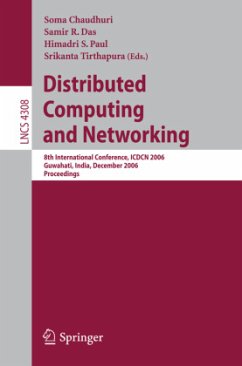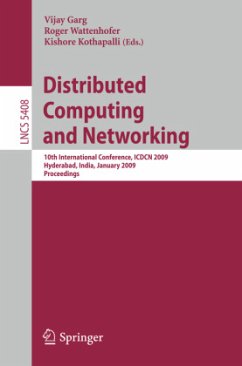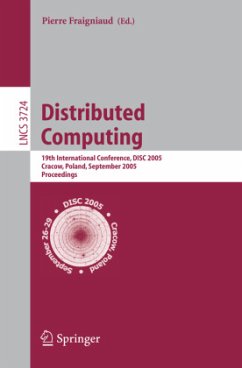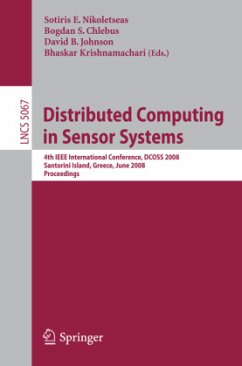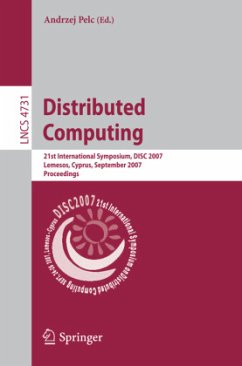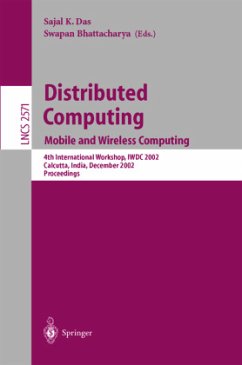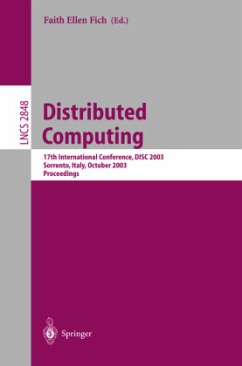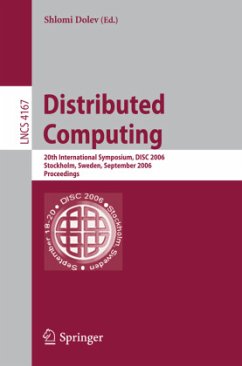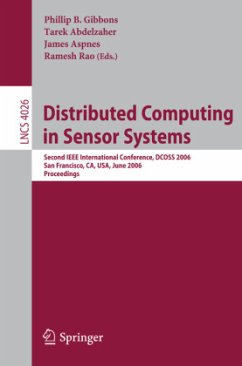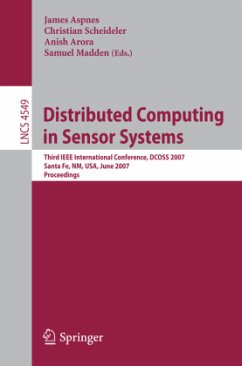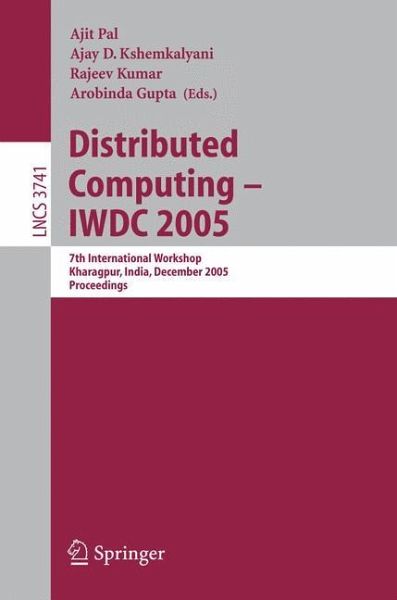
Distributed Computing - IWDC 2005
7th International Workshop, Kharagpur, India, December 27-30, 2005, Proceedings
Herausgegeben: Pal, Ajit; Kshemkalyani, Ajay D.; Kumar, Rajeev; Gupta, Arobinda

PAYBACK Punkte
39 °P sammeln!
We also thank all the members of the Organizing Committee, Arobinda Gupta,AjitPal,ShamikSural,IndranilSengupta,AbhijitDas,DipankarSarkar, Jayanta Mukhopadhyay, Pallab Dasgupta, Debasish Samanta, Soumya Ghosh, Arijit Bishnu, Pabitra Mitra, and Sudeshna Sarkar, for their e?orts. We are grateful to the Indian Institute of Technology Kharagpur, and in particular to Prof. S.C. De Sarkar, Head, School of Information Technology and Deputy - rector,IITKharagpur,forextendingthelogisticsupporttotheconference.Prof. DeSarkarisalsoamemberoftheSteeringCommitteeofIWDC.Lastbutnotthe least, we also thank Prof....
We also thank all the members of the Organizing Committee, Arobinda Gupta,AjitPal,ShamikSural,IndranilSengupta,AbhijitDas,DipankarSarkar, Jayanta Mukhopadhyay, Pallab Dasgupta, Debasish Samanta, Soumya Ghosh, Arijit Bishnu, Pabitra Mitra, and Sudeshna Sarkar, for their e?orts. We are grateful to the Indian Institute of Technology Kharagpur, and in particular to Prof. S.C. De Sarkar, Head, School of Information Technology and Deputy - rector,IITKharagpur,forextendingthelogisticsupporttotheconference.Prof. DeSarkarisalsoamemberoftheSteeringCommitteeofIWDC.Lastbutnotthe least, we also thank Prof. Sukumar Ghosh, who is heading the IWDC Steering Committee, for his guidance and his continuous support and advice. No academic meeting can achieve its desired end without the contributions of the authors, reviewers, and the participants. We extend our heartfelt thanks to all of them for making the event a success. We sincerely hope that this event will be a valuable addition to the Distributed Computing research endeavor. December 2005 Anupam Basu Michel Raynal Program Chairs Message On behalf of the Program Committee of the 7th International Workshop on Distributed Computing (IWDC) 2005, it is our great pleasure to welcome all of you to Kharagpur, India. Our goal has been to put together a rich technical program, including high-quality technical papers and state-of-the-art tutorials and invited talks. The conference received 253 submissions in response to the call for papers.





